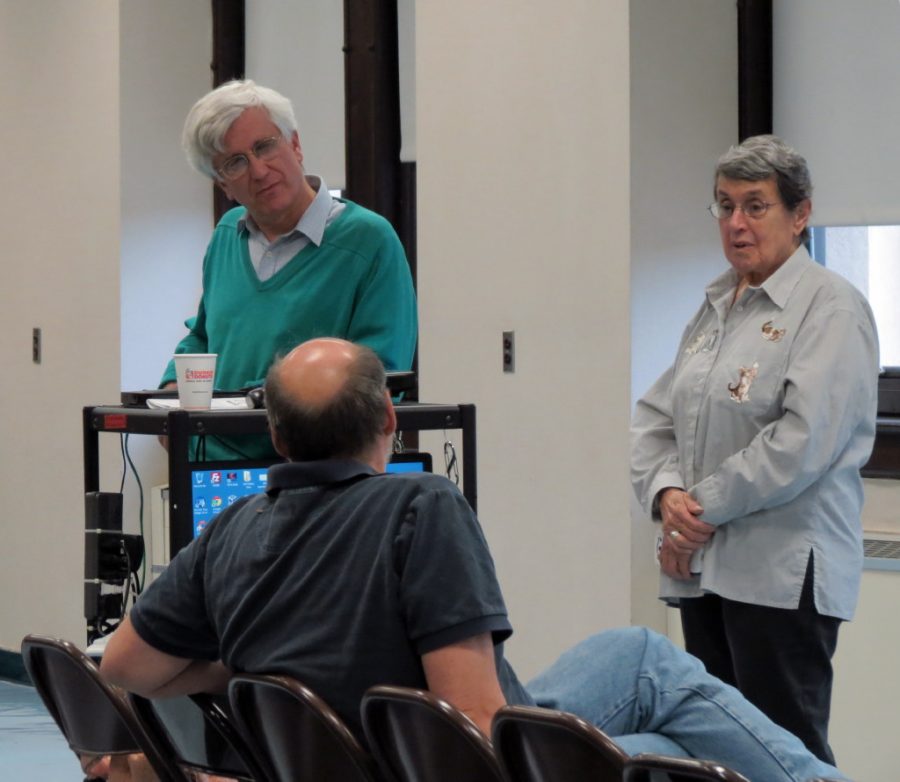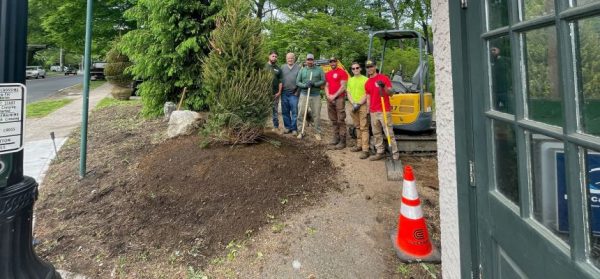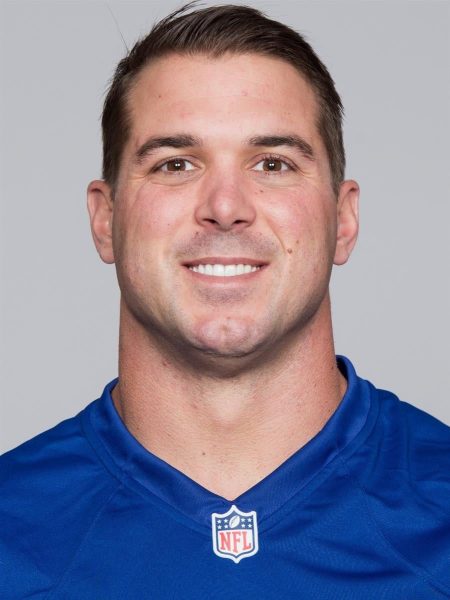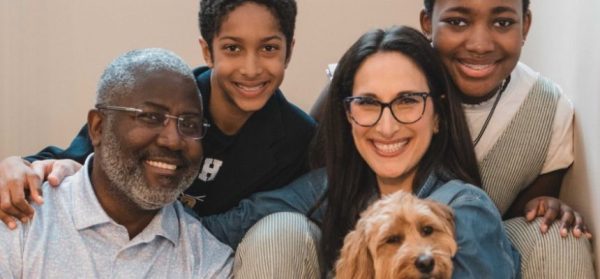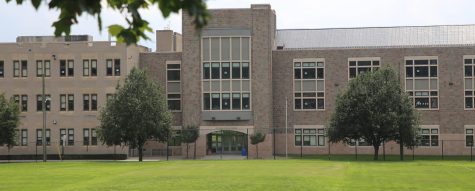Westchester computer club navigates evolving PC landscape
WPCUG president Pierre Darmon and vice president Deb Meisels at a workshop.
Editor’s note: This story was provided by the Westchester PC Users Group.
Years ago, local residents wanting product and basic user information for their personal computers would go to stores like the 17 Radio Shacks blanketing Westchester County and other now-defunct specialty retailers. If clerks didn’t know or just made bland sales spiels, “after the salesperson moved away, another customer would walk up and volunteer advice,” recalls longtime local computer aficionado Joe Bruno. “That’s often how people learned about products and troubleshooting in that era.”
Sharing expertise informally with unbiased and knowledgeable persons locally is the mission of the Westchester PC Users Group, a 38-year-old local non-profit computer club. Reachable at www.wpcug.org , the club conducts about 15 workshops a month, which serve as sounding boards for practical knowledge regarding personal computers and mobile devices for both hardware and software. WPCUG’s 170 members come from across Westchester, Putnam, Fairfield and Bronx Counties.
“If you belong to the club, you get free telephone support from our knowledgeable experts,” says Deborah (“Deb”) Meisels, vice present of WPCUG and who lives on City Island. “Most of our workshops start with a Q&A session. So if you have a technical problem, you can ask in the Q&A and get help” tapping the expertise of workshop leaders and members. Meisels, who is a retired proofreader for professional publishers and organizations, notes that some workshop leaders taught tech at the famed Bronx High School of Science and some others work as computer consultants.
WPCUG has been through it all. Decades ago, concerns of local computer users centered around waves of destructive computer viruses running amok and navigating the cumbersome PC operating systems of the era that frequently required professionals to set up. Now plug-and-play simplicity has sparked a revolution of easy-to-use devices; smart phones and tablets are part of the mix. With this progress, home computer users are now befuddled in different ways. It’s a chore managing today’s online world that stretches from financial transactions, such as bill paying, banking and stock trading to navigating overflowing personal content of vast troves of photos and emails.
Two well-attended WPCUG workshops on “Digital Legacy” illustrate the point that today’s digital media is becoming the dominant recording medium in people’s lives. The workshops were inspired by growing instances of disasters ensuing when persons are incapacitated or die with no one able to access online financial accounts, assets and communications. “Digital Legacy” advice included this checklist: appoint a digital executor (a person separate from the overall estate executor); create a unified password manager; and print out on paper passwords and financial records that are stored to be accessible to the digital executor.
Another hot topic is protecting personal information in digital media. “Our private lives and private data are constantly at risk,” cautions WPCUG president Pierre Darmon, a White Plains resident. “People don’t realize how much they are sharing.” The former career IBMer, who holds a Ph.D. degree, operates a computer support and education consulting business, Westchester PC/Mac Solutions.
Joe Bruno, who is a retired computer consultant living in Sleepy Hollow, agrees data-security is a top-of-mind issue of club members, noting that users increasingly find vulnerabilities don’t come from their computers. Instead, the hackers break into non-computer devices connected to personal wireless networks that the ordinary person doesn’t think of as dangerous entry points. These include internet-connected video doorbells, baby/nanny monitors, home climate controllers, smart TVs and motors for everything from garage door openers to roof vent fans.
“If any malicious individuals or organization break into your network, once they’re in, they can see anything that is shared on your network,” says Bruno. A solution is to connect such ancillary devices to their own, separate networks; that’s achievable using multiple routers.
Many WPCUG members are older adults and retirees whose computer and tech experience goes back decades, literally before Microsoft introduced Windows and Apple MacIntosh. For example, while working at a Veterans Administration hospital in the 1980s, Bruno pioneered using personal computers—then something of a novelty–for therapy to rehab patients.
WPCUG workshops occasionally touch on nostalgia (“remember how difficult this used to be!”). But members are mostly focused on mastering today’s digital media and also looking to what’s on the horizon.



